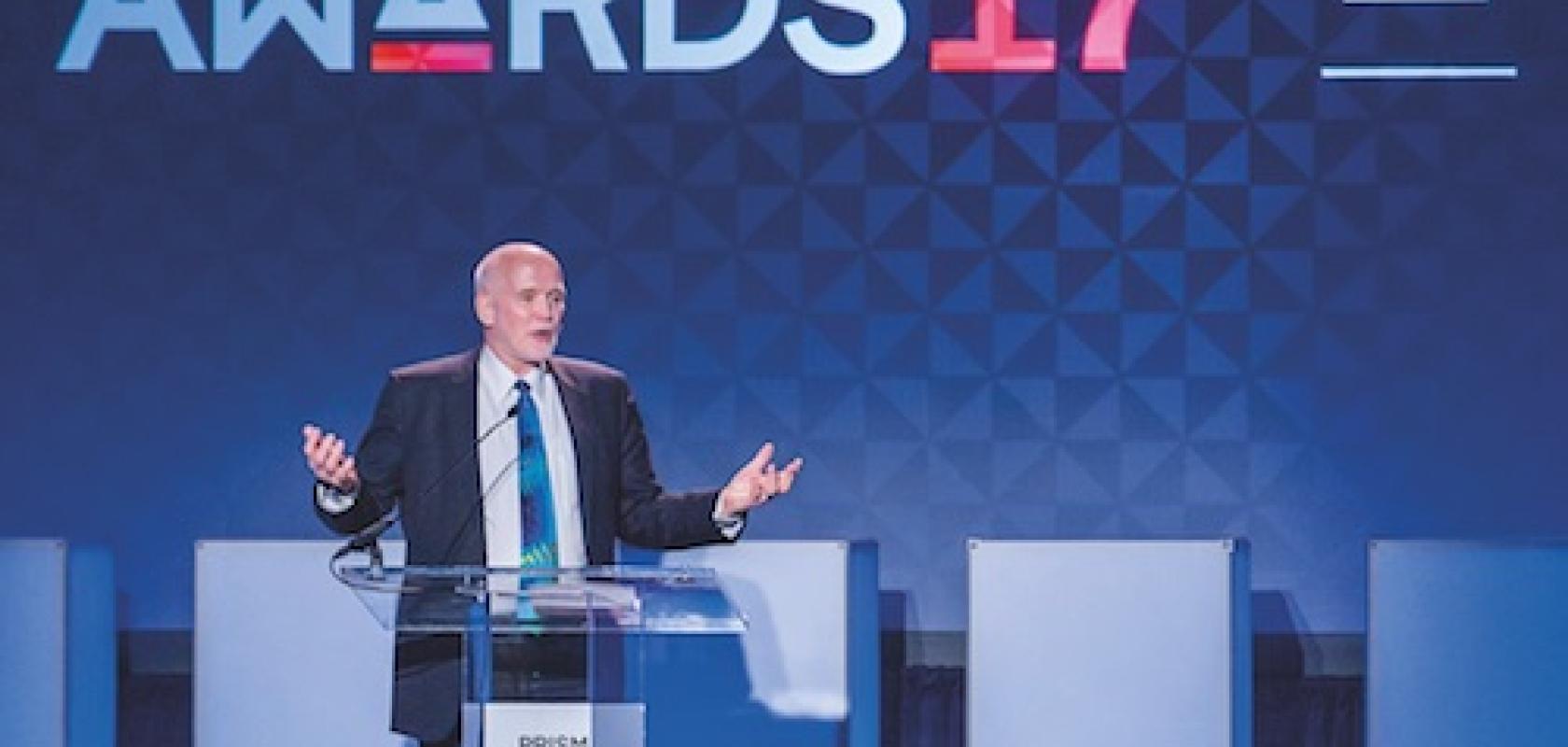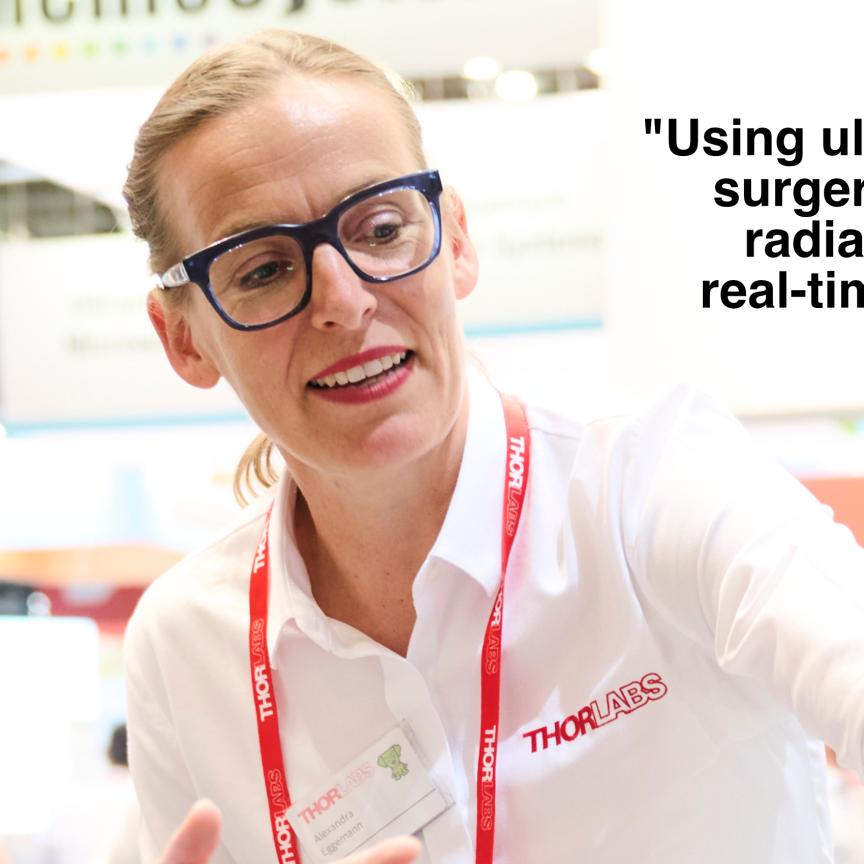Dr Eugene Arthurs is to retire as CEO of SPIE in June following 18 years with the society. He speaks to Electro Optics about his time heading the international photonics association
What aspects of your position as SPIE CEO have you enjoyed the most?
I have greatly enjoyed the people of our community and the many SPIE staff who have inspired me with their dedication to serving with ever higher levels of professionalism. I used to have a desk sign, ‘Good enough isn’t’, but I found it redundant at SPIE. Other very enjoyable aspects of the role have been the intellectual stimulation from the constant advances in photonics, from nano to celestial, and not forgetting the bio wetware, and for someone with my passion for innovation, where else would one find such a cornucopia?
How has the role of SPIE evolved over the past two decades?
SPIE has always been an important element in the photonics industry, with our events and publications, the latter being the most cited in photonics patents. Over the last two decades I’d like to think that SPIE has played an important role in establishing the identity of the photonics industry. We’re not there yet, but we are gaining recognition. I recall going round an exhibit in our industry with a potential investor in the 1980s and he said this struck him as a hobby show. The analysts at Photonics West, walking around The Moscone Centre, in perhaps the prime top tier city for emerging technology in the US, have a completely different view. No more second tier for photonics.
In a time when students have many choices, a good number of them less than desirable perhaps, SPIE has supported and encouraged countless students. I’d have to go back and add to my answer to your first question. There is nothing better than someone saying they are enjoying a productive, rewarding and fun career in photonics, and saying that SPIE played a formative role in getting them involved or interested when they were a student. These students are the fuel for photonics innovation. We continue to foster the future.
What do you see as the main strengths of the European photonics industry in the future, given the growth seen in other regions such as Asia?
Germany has always been an optics and photonics power and I have previously noted that Jena was to optics what Silicon Valley was to the early semiconductor industry. I give the European Union great credit for its recognition of photonics, and being a founder member of the board of stakeholders for Photonics21 I have had the privilege to be part of this cooperative effort spanning industry, academia and EU administration to keep Europe strong in photonics.
One side effect of the speed of technology development within our industry is the plethora of options that it offers to those beginning their careers. What can the industry do to retain and develop that talent, so the core needs of photonics remain fulfilled?
The dizzying rate of development impacts technology broadly and the expansion of science makes me wonder how anyone can call himself or herself a scientist today. This requires lifelong learning, which is another key goal of SPIE. The technology our community has created has pervaded life generally with much more to come. Any company that wants the brightest and best to fuel growth must provide a stimulating environment, one where talent has the encouragement and freedom to keep developing. And get the recognition for accomplishments. In vibrant tech companies the engineers and scientists will be part of the decision making process – making the future – and not just an expense item in the financial reports. As I see more consolidation in the industry, I wonder whether innovation will suffer. In recent decades, large traditional companies in the US have tended to think of R&D talent as in the ‘back room’. Our industry has rightly been called fragmented, with a lot of technical leadership, and as a result has been a hotbed of creation. We can benefit somewhat by embracing business school concepts particularly the focus on potential customers, but need to protect the inventive spirit.
You asked what the industry must do to retain talent, and I suggested a real commitment to ongoing growth of these skilled people. Personnel reviews, if they survive, should have a significant focus on technical growth of the individual. While I say this, I note that the individual has a responsibility here. S/he should seek and make use of opportunities to keep current. I really believe that engagement with professional associations like SPIE will help both companies and individuals meet these challenges and help both nurture the excitement that drives so many of these brilliant young people.
Is enough being done to encourage collaboration between the industry, academia and government?
You have hit one of my hot buttons here. Though the short answer is ‘no’, I am glad to see some movement in this, particularly in the UK. I think Germany has done more here and has the results to show for it in our domain.
What excites you most about having more time for advocacy/analysis work?
It is obvious that aspects of the economic model that has served us fairly well are not sustainable. Significant changes in ratios, such as the number of workers to retirees, pose pretty fundamental challenges. Population growth underpinned how we came to behave. In most of the developed world, that tide has turned, and in countries like the US universities are already seeing smaller numbers of native students. With the old ratios, countries could afford to support science and I believe we became to expect this, and more support, and we became lazy about justifying this support from taxpayers. Fortunately there is growing interest in science policy, but the bottom line is that we can’t afford all the science that the science community wants. I think it is an important time to develop a better understanding of innovation and to advocate for science. I believe photonics has extraordinary potential to improve lives and save our planet. We can and must contribute strongly to the UN’s Sustainable Development Goals. We need to sustain the momentum, and understanding and advocacy will be key.


